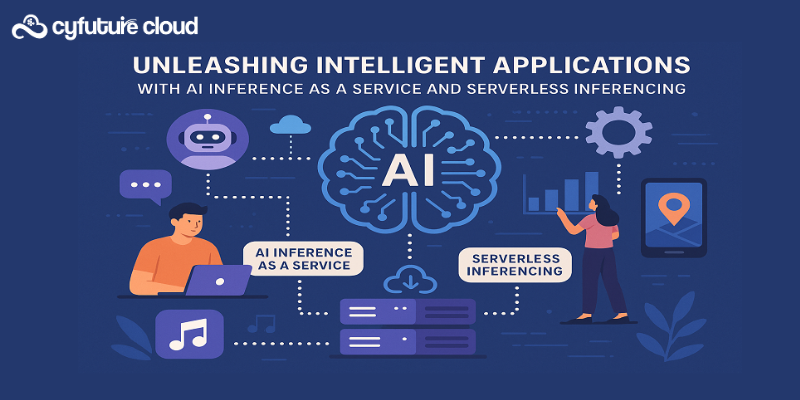Table of Contents
Introduction
An international research firm has predicted that the Indian cloud market is projected to grow at a CAGR of 23.1% by 2025, reaching a value of USD 13 billion, as reported by Business Standard.
In recent years, there has been a surge in entrepreneurship in India, with many new and innovative startups entering the market. These startups are leveraging new technologies and business models to disrupt traditional industries, creating new opportunities for growth and investment.
Some of the diverse portfolios include e-commerce, fintech, renewable energy, health tech, edtech, and cloud computing is on top among all of them.
Companies that move to the cloud make more money. And not by a small percentage, either. SMBs that invest in the cloud report up to 25%growth in revenue and up to 2x the profits over those who don’t. Embracing the cloud is simply a better path to faster growth.
Cloud computing has become an integral part of our daily lives, with businesses and individuals alike relying on it to store, process, and manage data.
The global cloud computing market is expected to grow significantly in the coming years, with experts estimating that the industry will reach $623.3 billion by 2023. Given the growth potential, it’s no wonder that many investors are seeking to invest in cloud computing companies.
This blog will let you understand why cloud computing can help you maximize your returns.
Learn why cloud technology is a smart investment for investors
Cloud computing has become a critical component of the modern business landscape, allowing organizations of all sizes to access the computing resources they need to support their operations.

Despite the growing popularity of cloud computing, however, there are still some investors who are hesitant to invest in this innovative technology.
Through this blog, we will help these investors to better understand the advantages of cloud computing, and why this technology is such a smart investment for investors.
1. Increased Efficiency and Productivity
One of the primary benefits of cloud computing is that it enables organizations to increase their efficiency and productivity by providing them with access to computing resources when needed. With the cloud, business investors can take advantage of powerful computing resources, such as data centers and servers, without investing in expensive hardware and software.
In addition, cloud computing allows businesses to work from anywhere at any time. This means that employees can access the resources they need from their laptops or mobile devices, enabling them to work more efficiently and effectively, even when they are away from the office.
2. Scalability and Flexibility
Another key benefit of this technology is its scalability and flexibility. With the cloud, businesses can easily scale their computing resources up or down as their needs change without significantly investing in new hardware or software.
This scalability and flexibility allow businesses to respond quickly to changing market conditions and customer demands. For example, suppose a business experiences a sudden increase in demand for its products or services. In that case, it can quickly scale its computing resources to accommodate this demand without worrying about the costs and complexities associated with acquiring and deploying new hardware and software.
3. Improved Cost-Effectiveness
Cloud technology also offers investors the ability to improve their cost-effectiveness. With the cloud, businesses can reduce capital expenditures by eliminating the need to invest in expensive hardware and software. Instead, they can pay for the computing resources they need on an as-needed basis, reducing their overall costs and improving their bottom line.
In addition, cloud computing also helps businesses reduce their operating expenses by enabling them to take advantage of economies of scale. By sharing the costs of maintaining and operating large data centers and servers with other businesses, organizations can reduce their costs and improve their overall financial performance.
4. Enhanced Security and Compliance
Another important benefit of cloud computing is that it provides businesses with enhanced security and compliance capabilities. With the cloud, businesses can use the latest security technologies and practices to protect their data and applications from cyber threats.
In addition, cloud computing providers often have expertise in compliance regulations, such as HIPAA, SOC2, and PCI DSS. Businesses can be confident that their cloud-based systems and data comply with these regulations, reducing the risk of costly data breaches and regulatory penalties.
5. Increased Innovation
Finally, cloud computing also allows businesses to increase their innovation and competitiveness. By enabling organizations to quickly and easily access the computing resources they need, cloud computing enables businesses to focus on developing new products, services, and applications that can help them differentiate themselves from their competitors and drive growth.
Investing in cloud computing also allows investors to be part of this exciting technology, which is rapidly changing how organizations worldwide do business. With the continued growth of cloud computing, investors who are willing to take advantage of this technology will be well-positioned to reap the benefits of this innovation for years to come.
6. Enhanced Disaster Recovery and Business Continuity
For all sizes of businesses, disaster recovery and business continuity are critical concerns. With the cloud services, businesses can leverage disaster recovery and business continuity solutions to ensure that their data and applications are always available, even during a disaster.
Cloud computing providers offer a range of disaster recovery and business continuity solutions, such as data backup and replication, that can help organizations protect their critical data and systems from data loss and downtime. These solutions also enable organizations to quickly and easily recover from a disaster, reducing the impact of downtime and ensuring that their operations can continue without interruption.
7. Access to Cutting-Edge Technologies
Cloud computing provides businesses access to cutting-edge technologies, such as artificial intelligence, machine learning, and the Internet of Things. These technologies can help organizations transform their operations, enabling them to gain new insights into their data, automate their processes, and improve their overall performance.
By leveraging cloud-based solutions, businesses can take advantage of the latest technologies without having to invest in expensive hardware and software. This means organizations can stay competitive and innovate even as new technologies emerge and evolve.
8. Improved Collaboration and Communication
Finally, this technology allows businesses to improve their collaboration and communication. With cloud-based solutions, such as collaboration platforms and communication tools, businesses can connect their employees and customers in real time, regardless of location.
This improved collaboration and communication enable businesses to work more efficiently and effectively, increasing their productivity and reducing the time it takes to complete tasks and projects.
In addition, cloud-based collaboration and communication solutions also allow businesses to connect with their customers in new and innovative ways, improving their customer experience and driving growth.
Why the Cloud Computing Industry is a Key Investment Focus for the Future?
The cloud computing industry is considered a key investment focus for the future. Investors looking to build long-term wealth should consider cloud computing stocks because one of the main beneficiaries of emerging technologies like –
- Autonomous Vehicles (both cars and drones)
- Augmented Reality/Virtual Reality (AR/VR)
- Artificial Intelligence (AI)
- 5G Networks
- Internet of Things (IoT)
- Blockchain Security
- Robotics.
Say ‘Yes’ to Cloud computing
To determine whether cloud computing is a suitable solution, each company must assess its specific needs and resources.
As previously stated, there are several key factors, such as cost, efficiency, and maintenance. While cloud computing may work well for some companies, it may not be the optimal choice for others. Thus,
For these reasons, firms must evaluate their unique needs and determine the strategy that best aligns with their current requirements. However, cloud computing is a smart investment for investors looking to capitalize on the growth and innovation of this exciting technology.
Recent Post
Send this to a friend

 Server Colocation
Server Colocation CDN Network
CDN Network Linux Cloud Hosting
Linux Cloud Hosting Kubernetes
Kubernetes Pricing Calculator
Pricing Calculator
 Power
Power
 Utilities
Utilities VMware Private Cloud
VMware Private Cloud VMware on AWS
VMware on AWS VMware on Azure
VMware on Azure Service Level Agreement
Service Level Agreement 



















